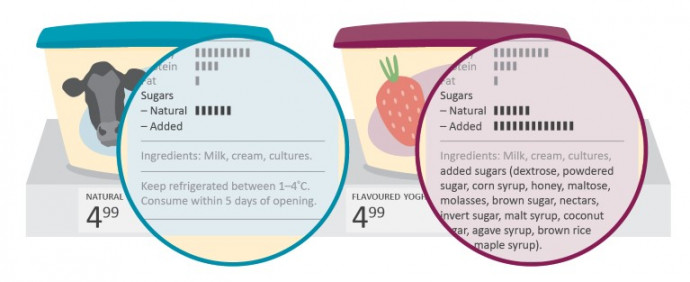Sugar and health

2016: Find out the latest on what consuming added sugar might mean for our health
Sugar and health is a topic that is surrounded by mixed messages. We have set out to summarise the current evidence to remove some of the confusion.
Sugar and health topics:
Sugar in food |
How much sugar should we eat? |
Sugar metabolism |
Sugar and health effects |
Summary - sugar and health
- There is strong evidence linking sugar consumption with increased body weight as well as tooth decay.
- Many studies also show an association between a high intake of added sugars and obesity, type-2 diabetes, heart disease and gout – however research to date has not yet fully established the exact mechanisms behind these relationships.
- No study has shown any negative effects from reducing sugar intake in the diet.
- The current discussion on negative health effects from sugar is mainly concerned with sugars, such as sucrose, that have been added by food manufacturers.
- Beverages which are high in sugar are nutrient and fibre poor, and can readily lead to overconsumption because they do not lead to a sense of fullness.
- The World Health Organization (WHO) recommends a maximum intake of sugars of less than 10% of total energy intake for adults and children, and less than 5% for better health, excluding sugars found in whole fruits, milk and vegetables.
- Current food labelling does not allow consumers to assess how much sugar has been added to food and drinks, making it difficult to follow dietary recommendations and guidelines.
Sugar and health animation
Sugar and Health from Royal Society Te Apārangi on Vimeo.
Infrequently Asked Questions Blog

Dr Lisa Te Morenga
It’s particularly hard to reduce sugar intake over the holiday season, when so many of our social interactions revolve around the consumption of sweet food, says University of Otago Research Fellow Dr Lisa Te Morenga. It’s also difficult when we don’t know, or won’t admit, how much sugar we’re eating. Lisa provided expert advice for this paper on sugar and health. She tells us about the links between sugar and ill health, how under reporting of sugar consumption makes it difficult to prove those effects, and how a new test can measure long-term sugar consumption by looking at hair.
Read blog: ’tis the season we ate sugar
